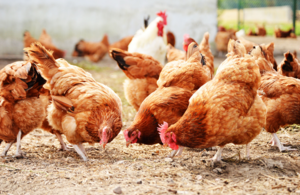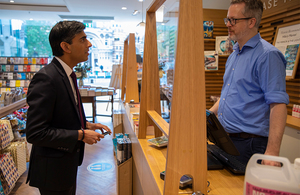It was utterly absurd that a load of far-right thugs and bovver boys yesterday converged on London with a mission to protect the statue of Winston Churchill. It was right that a good number should have been arrested. They were violent. They were aggressive towards the police. They were patently racist. There is nothing that can excuse their behaviour.
And yet it was also, frankly, absurd and deplorable that the statue of Winston Churchill should have been in any plausible danger of attack. It was outrageous that anyone could even have claimed that the statue needed protection. It was and is miserable to see his statue entombed in its protective sheath.
It is true that the monument has been covered up several times before, in anticipation of trouble, after consultation with the Mayor’s office and English Heritage, because the police believe that is the safest and simplest thing to do. But many people will look at that image and feel a sense of bewilderment.
Why attack Churchill? What has the world come to when one of this country’s greatest ever leaders – perhaps our greatest – has to be shielded from the wrath of the mob? We all understand the depth of feeling that has been exposed by the killing, in Minnesota, of George Floyd. No one who cares about this country can ignore the many thousands of people who have joined the Black Lives Movement to protest peacefully, as most of them have, in the last few days. It is no use just saying that we have made huge progress in tackling racism.
There is much more that we need to do; and we will. It is time for a cross-governmental commission to look at all aspects of inequality – in employment, in health outcomes, in academic and all other walks of life. We need to tackle the substance of the problem, not the symbols. We need to address the present, not attempt to re-write the past – and that means we cannot and must not get sucked into never-ending debate about which well-known historical figure is sufficiently pure or politically correct to remain in public view.
Where will it end? Are we supposed to haul down Cromwell who killed so many thousands of people in Ireland? What about Nelson and all the other innumerable reminders of this country’s imperial past? Take the case of Ayuba Suleiman Diallo, whose portrait hangs in Room 15 of the National Portrait Gallery. He was a native of the Gambia who was known and admired in C18 London as a translator of Arab texts. He was also, originally, a slaver himself. Does that mean he should be purged from the Gallery?
My point is that our history is immensely complex, and modern Britain is a product of a vast conglomerate of ideas and beliefs – not all of which look good in the light of today. Yes, Churchill expressed all sorts of views over his immense career – and bear in mind that he entered parliament under Queen Victoria and left it under Queen Elizabeth – which are totally unacceptable to modern ears.
As it happens, he generally changed with the times. He changed his view on India, and her capacity for independence; and whatever he may have said about Islam in the 1890s, he also built the Regent’s Park Mosque in the 1940s. And above all – as so many have rightly pointed out – it is the height of lunacy to accuse him of racism, when he stood alone against a racist tyranny that without his resistance would have overwhelmed this country and the rest of Europe.
He was a hero, and I expect I am not alone in saying that I will resist with every breath in my body any attempt to remove that statue from Parliament Square, and the sooner his protective shielding comes off the better.
It is not just that is wrong to destroy public property by violence. I am also extremely dubious about the growing campaign to edit or photoshop the entire cultural landscape. If we start purging the record and removing the images of all but those whose attitudes conform to our own, we are engaged in a great lie, a distortion of our history – like some public figure furtively trying to make themselves look better by editing their own Wikipedia entry.
Would it not be better and more honest to ask our children to understand the context, to explain the mixture of good and bad in the career of Churchill and everyone else? And rather than tear some people down, we should build others up, and celebrate the people who we in this generation believe are worthy of memorial. We have brilliant sculptors and artists. Why should they not be commissioned to make fitting additions to the landscape and cityscape? Take the great courtyard in the Foreign and Commonwealth office, where stone statues of British explorers and imperialists look down from the niches. Many of the niches are for some reason unfilled.
Rather than tear down the past, why not add some of the men and women – most often BAME – who helped to make our modern Commonwealth and our modern world? Isn’t that a more cheerful approach?
This new vogue for politically correct iconoclasm is not just dispiriting, and unfair, and often ahistorical. Worst of all, it is a total distraction from the matter in hand. It does nothing for BAME people to go around mutilating statues, or campaigning against this or that cultural relic. There are far greater and more important battles.
In the last ten years we have seen a big expansion in BAME students at our universities; more young black kids excelling in the most challenging subjects at school. The struggle now is to turn that into the universal narrative and the universal expectation – a story of success and not discrimination. That means taking seriously the serious points that are raised by the marchers. It means addressing racism and discrimination, and stamping it out.
But it does not mean wasting time in delectable academic disputation about the life and opinions of every historical personality currently immortalised in bronze or stone.
Let’s fight racism, but leave our heritage broadly in peace. If we really want to change it, there are democratic means available in this country – thanks, by the way, to Winston Churchill.

